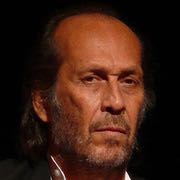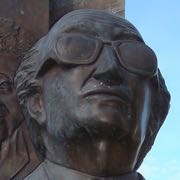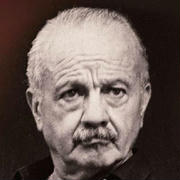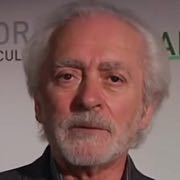Manolo Sanlúcar (Manuel Muñoz Alcón) is a flamenco composer and guitarist born in Sanlúcar de Barrameda (Cádiz) in 1943. He is considered one of the most important Spanish composers of present times, and together with Paco de Lucía, Tomatito, and Vicente Amigo, one of the main figures in the evolution of the flamenco guitar in recent years.
His first teacher was his father, Isidro Sanlúcar, a baker and old-style guitarist, who frequently came home with people who were fond of cante and playing; from his childhood he was exceptionally skilled to follow in his steps. His brothers also decided on the same vocation, among them Isidro.
He soon began to research, aware that the guitar had infinite possibilities that had hardly been explored. The most ambitious of his contributions to the art has been his constant striving to integrate flamenco in symphonic music. Several works of the greatest interest which have placed his name among the great composers of our time include: Fantasía para guitarra y orquesta, Trebujena, Medea and Soleá, showing his attempts to merge his primary focus in music, and which toured the world as a ballet; Tauromagia or Aljibe. Some of them were recorded.
"I wish the experts in universal music to understand that they may approach flamenco, so they do not consider it something tribal and topical, so they see a branch of music in flamenco that allows very profound musical analysis and has extraordinary poetic and musical quality".
Discussing it further, he later declared,
"Flamenco is a philosophy, the way of thinking and feeling of a whole people and its historical tradition. That is why I feel the need to tell more things about flamenco with other sounds and I take to the orchestra and try to get the orchestra to play siguiriyas, but take note, not for the orchestra to accompany siguiriyas and a singer, but for the orchestra to take on the feeling of the flamenco and, as if it were a sole instrument, to tell that spirit and magic sound of flamenco".
Manolo Sanlúcar also composed a sort of flamenco opera on an idea by Lebrijano, to be played on the stage, although it has not yet been produced: Ven y Sígueme.
Two of his most critically acclaimed records are Tauromagia (1988), and Locura de Brisa y Trino. (2000) He has performed in some films.
He was awarded Spain's Premio Nacional de Música for interpretation in 2000.














